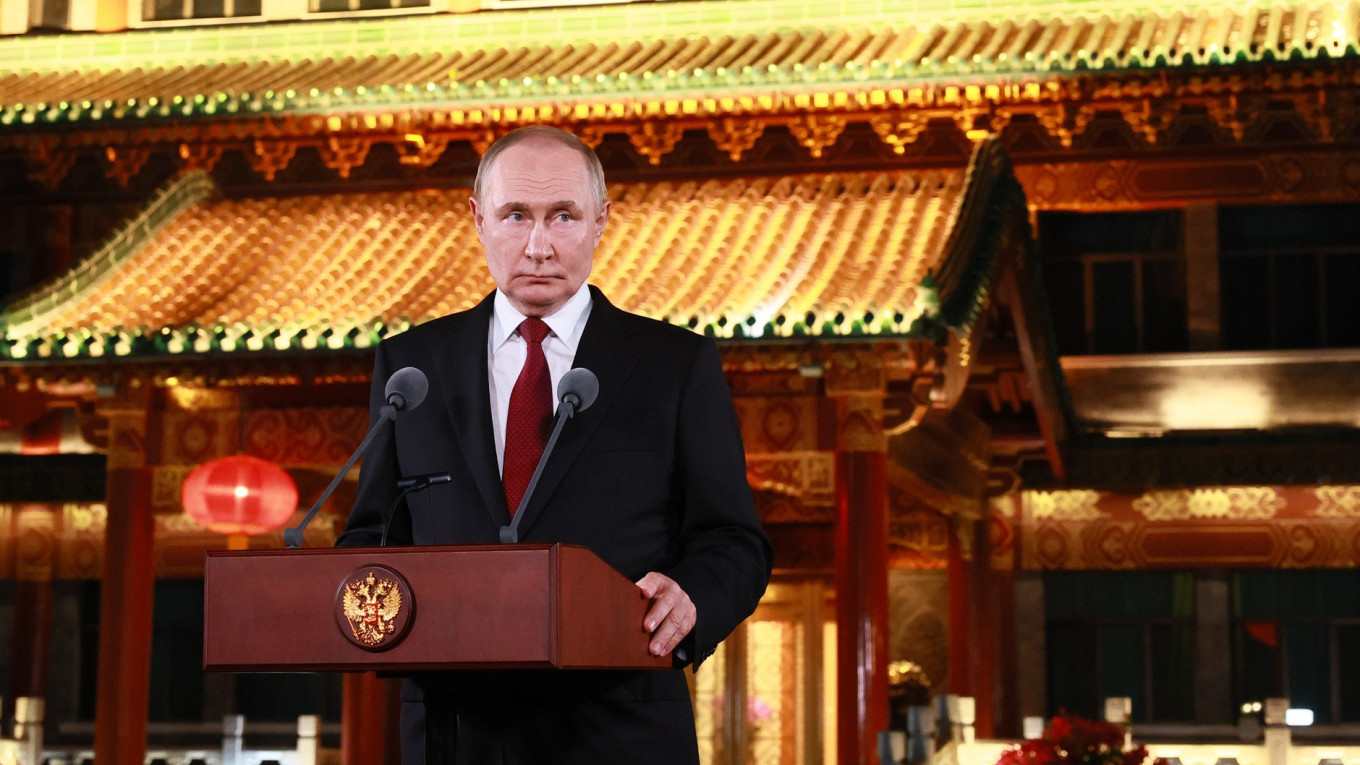President Vladimir Putin indicated on Wednesday that there might be “light at the end of the tunnel” in the ongoing negotiations aimed at resolving the conflict in Ukraine. However, he tempered this note of optimism by asserting that Russian troops would persist in their efforts if diplomatic solutions prove unsuccessful.
During a press conference held under the moonlight in Beijing, following his attendance at a Chinese military parade commemorating 80 years since Japan’s World War II surrender, Putin adopted his characteristic tone of defiance mixed with cautious openness.
“My belief is that if common sense prevails, it should be possible to reach an agreement on a mutually acceptable resolution to the conflict,” he told a gathering of Russian reporters. “This is especially true given the sentiments from the Trump administration—there appears to be a sincere desire to find a solution, not just empty rhetoric.”
“We shall observe how the situation unfolds,” Putin continued. “If things don’t develop positively, then we will need to pursue our goals through military means.”
The parade in Beijing, along with the annual summit of the Shanghai Cooperation Organization (SCO) held in Tianjin shortly before, has been interpreted by many analysts as a display of defiance against U.S. President Donald Trump’s disruptive “America First” foreign policy.
These events convened over two dozen world leaders, representing a diverse group of nations that have contested or questioned U.S. influence in global affairs.
On Wednesday, Putin stated that any resolution to the war in Ukraine would necessitate what he referred to as the “legitimacy” of the leadership in Kyiv. He suggested that Ukrainian authorities conduct a referendum, which he argued could not take place while martial law is in effect.
The Russian president has consistently cast doubt on Ukrainian President Volodymyr Zelensky’s legitimacy, accusing the Kyiv government of being composed of drug-addicted neo-Nazis. In March, Putin articulated that “democratic elections” in Ukraine could only be feasible under temporary external oversight from the UN and the United States.
While in Beijing, Putin firmly declared that Russia would not entertain any security assurances for Ukraine in exchange for territorial concessions, which have been speculated as potential components of a peace agreement between Moscow and Kyiv.
“Security guarantees are inherently important. Every nation should have them, including Ukraine,” he said. “However, this should not be linked to territorial exchanges. Our struggle is not primarily about land, but about human rights.”
These comments surfaced amid ongoing talks in Europe, where France and Britain are spearheading a loosely formed “coalition of the willing”—an informal alliance of Western nations pledging to offer security guarantees to Ukraine in the event of a peace accord with Russia. Nonetheless, the specifics of these potential guarantees remain unclear, and Trump has dismissed the idea of Ukraine joining NATO.
At the press conference, Putin also portrayed a victorious image of the Russian military in eastern Ukraine, despite analysts noting that Moscow’s recent incremental advances have come at a significant cost in terms of soldier casualties.
“All units of Russia’s armed forces are making progress successfully across all fronts,” the president stated.
Simultaneously, he attempted to counter Western narratives framing the Beijing military parade, along with the annual SCO summit, as a brazen show of anti-Western solidarity, describing the engagements as constructive.
“For four days, there was nothing that could be labeled as ‘confrontational,’” Putin remarked. “We are not focused on outmaneuvering or outsmarting anyone. Our concern is to optimize our work.”
On Tuesday, Trump, via his Truth Social platform, accused Russia, China, and North Korea of “conspiring” against the United States.
Putin responded to a query regarding Trump’s allegation by noting that “the U.S. president possesses a sense of humor,” adding that during his visit to Beijing, “nobody expressed negative opinions about the current American administration.”

